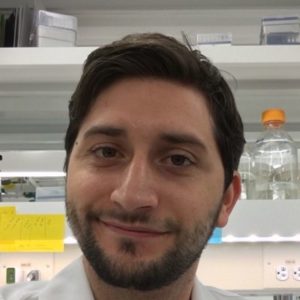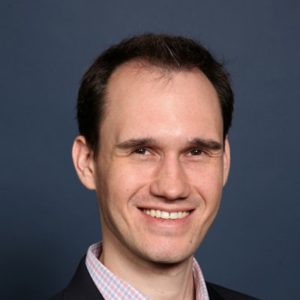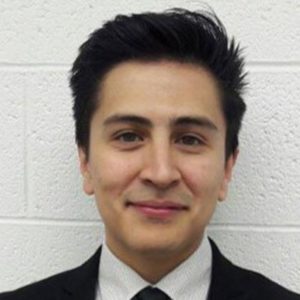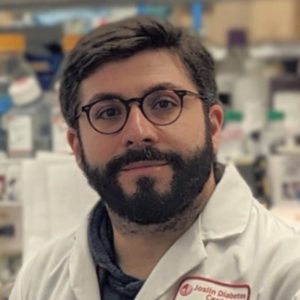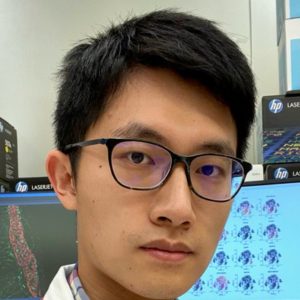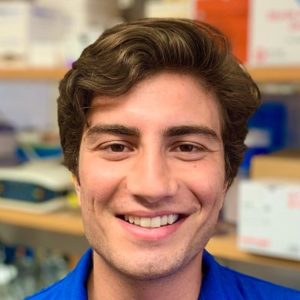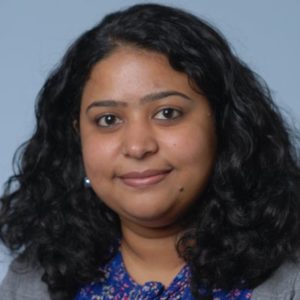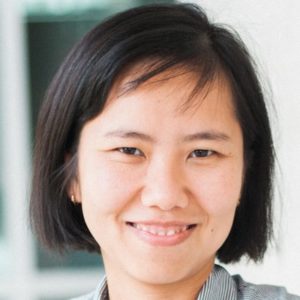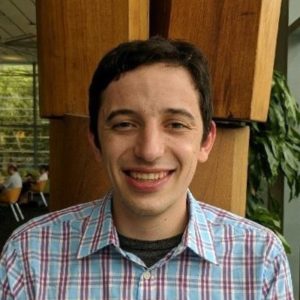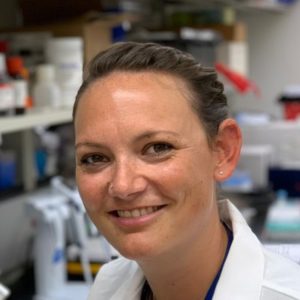Awards
HIRN 2021 Trainee Scholarship Recipients
The following trainees are recipients of the HIRN 2021 Scholarship based on competitive review of abstracts by members of the HIRN Planning Committee.
|
Giorgio Basile, PhD |
Giorgio Basile is a Postdoctoral Research Fellow in the laboratory of Professor Rohit N. Kulkarni at the Joslin Diabetes Center and Harvard Medical School. He completed his PhD in Endocrinology, Diabetes and Metabolism from the University of Rome, Sapienza. His interest for the research in diabetes started during his doctoral studies, when he took over a project aimed to identify genetic causes of familiar forms of diabetes, under the supervision of Prof. Vincenzo Trischitta. His previous work was on the characterization of endogenous factors, as well as bioactive small molecules, that could promote human Beta Cell proliferation. His current research focuses on identifying key regulatory pathways of Beta Cell proliferation and how alterations in gene expression contribute to the loss of function of the Beta Cell in diabetes development.
|
|
|
Hugh Bender, PhD |
Hugh Bender is a Postdoctoral Scholar in Christopher Hughes’ lab at the University of California, Irvine. He received his Ph.D. in Developmental, Regenerative, and Stem Cell Biology from Washington University in St. Louis. During his time in the Hughes Lab, he has developed the Islet-Vascularized Micro-Organ — a novel, biomimetic tissue-on-chip platform for maintaining human islets in the lab. His ongoing work seeks to incorporate human immune cells within this platform to better model beta cell damage during Type 1 Diabetes disease progression |
|
|
Roberto Castro-Gutierrez |
Roberto Castro-Gutierrez is currently a 5th year PhD candidate in the Molecular Biology program at the University of Colorado Anschutz Medical Campus. Roberto received his BS degree in Cellular and Molecular Biology from the University of Texas at El Paso. His research uses genetically engineered stem cell derived beta-like cells (sBCs) to understand the underlying causes of autoimmune diabetes and to develop novel treatment modalities. His recent work established in vitro and in vivo platforms to evaluate the role of PD-L1 and HLA class I proteins in the immune protection of sBCs. He is interested in perusing a scientific career in the field of cell replacement therapy. |
|
|
Dario F. De Jesus, PhD |
Dario De Jesus is a Postdoctoral Research Fellow in the laboratory of Professor Rohit N. Kulkarni at the Joslin Diabetes Center and Harvard Medical School, where he holds an ADA Postdoctoral Fellowship. Dr. De Jesus joined the Kulkarni laboratory initially as a Fulbright Research Scholar during his Master’s studies. He later enrolled in the Graduate Program of Basic and Applied Biology (GABBA) at the University of Porto, Portugal and returned to the Kulkarni laboratory to complete his PhD focused on research related to metabolic reprogramming of Non-Alcoholic Fatty Liver Disease. He is currently interested in mRNA modifications and especially in the role of N6-methyladenosine (m6A) in pancreatic islet cell function and survival in Type 1 and Type 2 Diabetes. |
|
|
Xiaofeng Huang, PhD |
Xiaofeng Huang is a Postdoctoral Research Fellow in the laboratory of Dr. Qiao Zhou at the Weill Cornell Medical College. He received his B.S. in Biotechnology from Xiamen University in China and his Ph.D. in Molecular Virology from the University of Hong Kong in Hong Kong, China. His current research goal is to develop a technology to derive large numbers of functional insulin-secreting cells from the abundant renewable sources of human gastric stem cells to treat Type 1 Diabetes. |
|
|
Charles Lazimi |
Charles Lazimi is a 1st year PhD student in the Department of Biomedical Engineering at the University of Florida in the lab of Dr. Ed Phelps. He received his BS and MS degrees in Biomedical Engineering at the University of Florida. While completing his master’s he was hired as a research scientist at L&L Biotech in Gainesville Florida where he developed skills in Molecular Cloning. His Masters capstone project consisted of sub-cloning a beta cell specific promoter into a GABA biosensor construct to detect endogenous GABA release in Human islets. The aim of his current research is to incorporate cloned biosensors into microphysiological systems to better characterize islet-immune interactions and islet neurotransmitter auto/paracrine signaling |
|
|
Charanya Muralidharan |
Charanya Muralidharan is a 5th year PhD Student in the Department of Biochemistry and Molecular Biology at Indiana University School of Medicine in the lab of Dr. Amelia K. Linnemann. She received her Bachelor’s in Technology (B. Tech) in Bioinformatics from SASTRA University, India. She received her first Master’s in Science (MS) in Cell & Molecular Biology at the Illinois Institute of Technology and a 2nd MS at the Indiana University-Purdue University Indianapolis (IUPUI) School of Sciences in Biology. Her initial studies were in the lab of Dr. Susan Walsh where she studied pigmentation genetics in the context of Forensic phenotyping. Her current research is on autophagy in the beta cells in the context of type 1 diabetes by implementing various molecular biology techniques and intravital imaging. |
|
|
Kim-Vy Nguyen-Ngoc, PhD |
Kim-Vy Nguyen-Ngoc is a Postdoctoral Research Fellow in the Laboratory of Maike Sander at the University of California, San Diego. She received her Ph.D. at Johns Hopkins University in Cell Biology with Dr. Andrew Ewald. During her time at the Sander lab, she has developed disease models to study diabetes using human pluripotent stem cell (hPSC)-derived islet cells. She established an organotypic culture model to vascularize hPSC-islets, which will serve as a platform for islet physiology and drug testing. |
|
|
Benjamen O’Donnell, PhD |
Benjamen O’Donnell is a Postdoctoral Research Fellow in the laboratory of Dr. Christopher Hughes and the University of California, Irvine. He received his Bachelor of Science in Biomedical Engineering at Saint Louis University before completing his PhD. in Bioinnovation at Tulane University. His dissertation focused on developing a microphysiological system modeling the effects of type II diabetes on an osteoarthritic synovial knee joint. His current work involves expanding an existing human vascularized micro-organ pancreatic islet model to incorporate circulating immune cells. This model will then be used to investigate the onset of type I diabetes and disease progression. |
|
|
Julia Panzer, PhD |
Dr. Julia Panzer is a Postdoctoral Research Fellow in the Department of Medicine at the University of Miami Miller School of Medicine in the laboratory of Dr. Alejandro Caicedo. She is trained as a food chemist and completed her PhD in Human Biology at the Technical University Dresden with Dr. Stephan Speier in Germany. During her doctoral studies she implemented the human slice platform to study islets in their native environment. Her current research focus on human islet development and alpha cell dysfunction in Type 1 Diabetes. |
